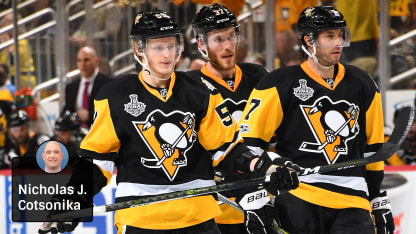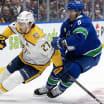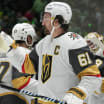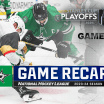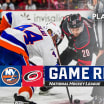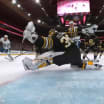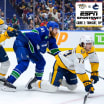The Penguins need to adjust. In Game 1, they struggled to generate shots mainly because they had a difficult time exiting their zone and entering Nashville's.
They need better structure in their zone, so the defensemen make quicker plays and get the puck to their forwards with speed.
"Our ability to get out of our end zone as efficiently and effectively as we can is critically important," Sullivan said.
They need to keep Nashville from setting up its 1-3-1 system in the neutral zone. When that happens, the Predators force the Penguins to dump in the puck. When that happens, puck-handling goaltender Pekka Rinne can diffuse the forecheck.
"I think when you let them set up in their left-wing lock in the neutral zone, they kind of can see where we're coming from and stop us," forward Nick Bonino said. "I think when we're able to play fast and get in position to help the [defensemen], get open for them, we can attack the other way and try to catch them off guard."
If they do dump in the puck, they have to be aware of Rinne and Nashville's skilled, mobile defensemen.
"When we go on the forecheck and try to hit them, and they bounce off and beat us up ice, we're in trouble," Bonino said. "We have to make better dumps. We have to keep it away from Rinne, make it tougher to get out. When they do get it out, they're always jumping up. So if we can bump them, chip their body and make it hard for them to get in the play, that's always good."
It's a good guess all of that was part of those 20 minutes of video, and it's a good bet the Penguins will be better in Game 2. They are 3-0 in Game 2 in these playoffs, when Sullivan and his staff have had a chance to see their opponents, analyze them and get to the point with the players.
"We're trying to do our due diligence," Sullivan said. "What can we learn from it? How can we improve our team? Do we need to make any adjustments? Do we have to game plan differently? These are all the discussions that we have behind the scenes in between games to try to help our team continue to have success."
